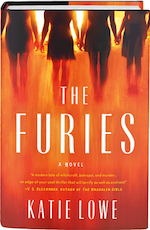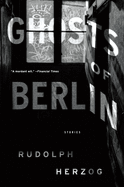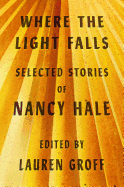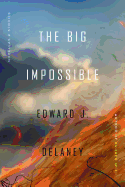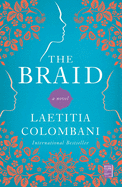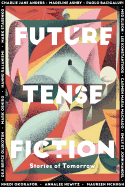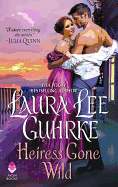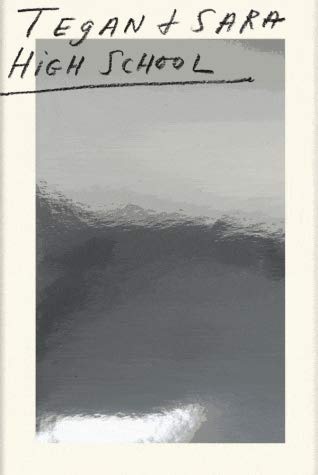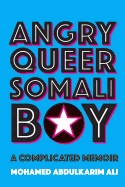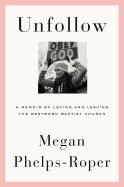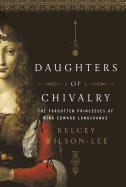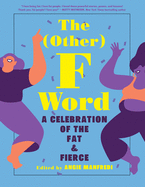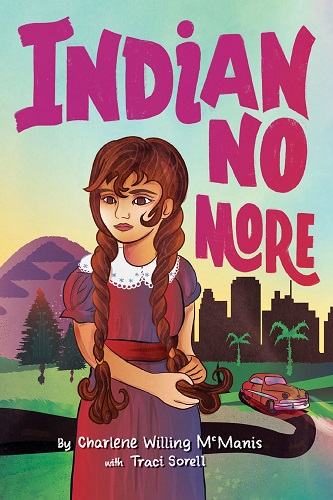 |
| (photo: Dearest Love) |
Katie Lowe is the creator of the blog Fat Girl, PhD, which explores feminism, body image and health. Her writing has been featured in the Guardian, the Independent and more. Following the publication of her debut novel, The Furies (coming from St. Martin's Press on October 8, 2019), Lowe will be returning to the University of Birmingham to complete her PhD in English literature; her thesis explores female rage in literary modernism.
You describe The Furies as "a book about obsession, witchcraft, and murder." What about these themes inspired you to write a novel?
I had the murder before I had anything else--I wrote that opening scene one afternoon with no idea who was talking, or what the context was, and then put it in a drawer for a couple of months and forgot all about it.
I'd also known for a long time that I wanted to write a book about female friendships, particularly among teenagers. It's such a heady period of life, when emotions are running so high and you feel everything with such intensity--so for me, it was irresistible. But I wanted to treat it seriously. Culturally, we have a tendency to minimize the experience of teenage girls: we say their music sucks, their interests are silly, their stories aren't meaningful coming-of-age narratives but high school dramas, and so on. It almost removes their agency when we talk about them like this, as though they're not fully rounded individuals but silly little girls.
Which is partly how I landed on witchcraft as a way of framing all of this. I wanted the girls in this novel to find power in another kind of female figure who sits in the "outsider" category and to run with it. It's such a powerful idea to me that these women accused of witchcraft over the centuries have rejected the expectations put upon them, even if that means being put to death. And so, with The Furies, I wanted the girls to find strength in that rather than fear.
This story of female fury and a need to mete out justice--especially to the men who have harmed them--resonates strongly with recent headlines. Can you talk a little more about the "brutal power of female friendship" and the empowerment through rage that the young women in your novel experience?
I think #metoo has given a language to something that's been part of the female experience for a long time, which is obviously why it resonated so powerfully with so many women.
The auction for the novel in the United States took place on the day the Weinstein allegations first came out, so the writing process took place while the kind of conversations #metoo has brought into the spotlight still only ever happened privately, among friends. It feels almost as though it's being published now into a world I never could've imagined while I was writing it, though it's vastly improved for it.
With that said, I--and most of my friends--had spent 2016-2017 in a kind of stunned horror at the way the world was changing around us. We were, and are still, angry. The fact that these girls and women [in my book] are so angry and so ready to take matters into their own hands was very much a product of that. It's a phrase that's used so often it's a cliché, but that doesn't make it any less true: if you're not angry right now, you're probably not paying attention.
At the start of the book, your protagonist, Violet, and her new friend, Robin, appear to be near foils of one another, but they become progressively more intertwined. Was this character evolution planned or did it grow organically as you wrote?
It really did grow organically. Something I've learned (painfully, I'd say, from this point in the end stages of hashing out a new book) is that I'm not someone who can plot characters in such a way that I can make them do things they aren't meant to do. There's a point, for me, where the book clicks and you know the characters well enough to put them in a situation and let them interact with each other and see what happens, rather than having to force things along. And for me, personally, a lot of the most enjoyable scenes to write were those in which Violet and Robin were alone together. Because they were so closely intertwined, it was so much fun just to put them in a situation and let them talk--almost more like writing a play than a novel.
Your characters are complicated, to say the least. Which was the most challenging to write? Which was the most relatable for you as the author?
The answer to both of these is Violet, but in ways that changed as the book went on. I had her voice straight out of the gate, and the situations I put her into, at first, were ones that were not entirely dissimilar to those I'd experienced at that age (starting school late, hanging out in a coffee shop with my new friends, etc.).
But the more she changed, the harder it was to write her voice. She went to such dark places that it was a challenge to maintain the coldness she develops, especially towards the end of the novel. What I'd hoped to do was begin with a character who was pretty relatable in general, but who--through a series of small, almost understandable decisions--became gradually more callous, taking the reader along for the ride. But spending months in that headspace with her was not the easiest thing!
Your writing is full of rich imagery that makes the story easy to visualize--it feels ripe for a screen adaptation. Did you think about the visual possibilities of TV or film as you were writing?
If I'm totally honest, I didn't. It's only this year that I bought my first TV, and when I was writing The Furies, I was living in a tiny flat with really glitchy wi-fi, so I couldn't really stream TV, either. In a way, I think that might've helped with the visual side of things because I had to put it on the page for it to exist for me, if that makes sense. I did have a really clear idea of how I wanted the world of the novel to look and to feel, so I'm thrilled whenever anyone says they've noticed it on the page.
With that said, owning a TV now, there is so much good stuff out there, and I'm very interested in the way books are adapted for the screen. It's a kind of magic, taking a world that exists on the page and making it into something visual. But deep down, I'll always be a literature nerd at heart. For me, the book will always come first. --Jennifer Oleinik
 Instead, I would point curious readers to Kochland: The Secret History of Koch Industries and Corporate Power in America by Christopher Leonard (S&S, $35). The Kochs are much less ostentatious than Succession's Roy family, but a key section of the book deals with a vicious interfamily struggle over the future of the company that ends only after a decades-long legal fight. What is essentially an argument over money evolves into something much more personal: the brothers on each side reportedly refused to speak to each other for years, even at their mother's funeral.
Instead, I would point curious readers to Kochland: The Secret History of Koch Industries and Corporate Power in America by Christopher Leonard (S&S, $35). The Kochs are much less ostentatious than Succession's Roy family, but a key section of the book deals with a vicious interfamily struggle over the future of the company that ends only after a decades-long legal fight. What is essentially an argument over money evolves into something much more personal: the brothers on each side reportedly refused to speak to each other for years, even at their mother's funeral.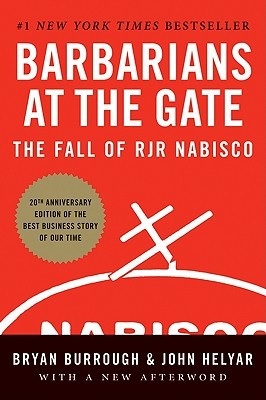 Business is also personal in what may be the greatest business book ever written: Bryan Burrough and John Helyar's Barbarians at the Gate: The Fall of RJR Nabisco (HarperBusiness, $17.99). In terms of understanding the intricacies of buyouts and other high-finance schemes that play a part in Succession, Barbarians at the Gate is an excellent resource. It's even better, though, as a clash of personalities and, as with Succession, greed and betrayal of Shakespearean proportion. The characters in Succession can seem impossibly callous at times, but Barbarians at the Gate shows that this is no artistic invention.
Business is also personal in what may be the greatest business book ever written: Bryan Burrough and John Helyar's Barbarians at the Gate: The Fall of RJR Nabisco (HarperBusiness, $17.99). In terms of understanding the intricacies of buyouts and other high-finance schemes that play a part in Succession, Barbarians at the Gate is an excellent resource. It's even better, though, as a clash of personalities and, as with Succession, greed and betrayal of Shakespearean proportion. The characters in Succession can seem impossibly callous at times, but Barbarians at the Gate shows that this is no artistic invention.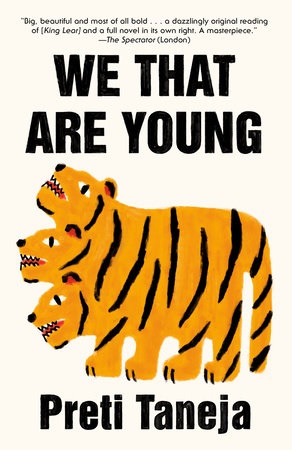 The last book I'd like to recommend is a novel, Preti Taneja's We That Are Young (Vintage, $16.95). It also centers on a succession crisis, and could efficiently be described as King Lear in India. Like Succession, it's a brilliant update of an enduring story. And, while it, too, is fictional, the narrative is just as easy to believe. --Hank Stephenson, manuscript reader, the Sun magazine
The last book I'd like to recommend is a novel, Preti Taneja's We That Are Young (Vintage, $16.95). It also centers on a succession crisis, and could efficiently be described as King Lear in India. Like Succession, it's a brilliant update of an enduring story. And, while it, too, is fictional, the narrative is just as easy to believe. --Hank Stephenson, manuscript reader, the Sun magazine


